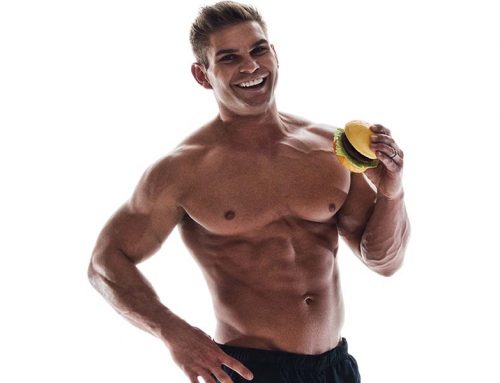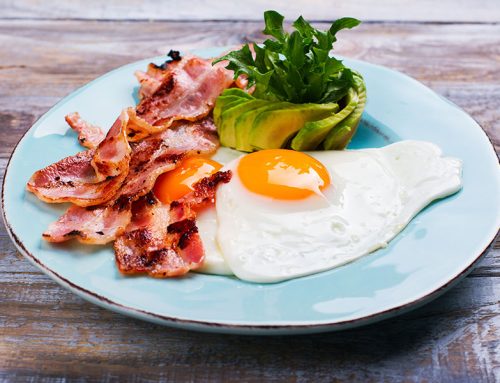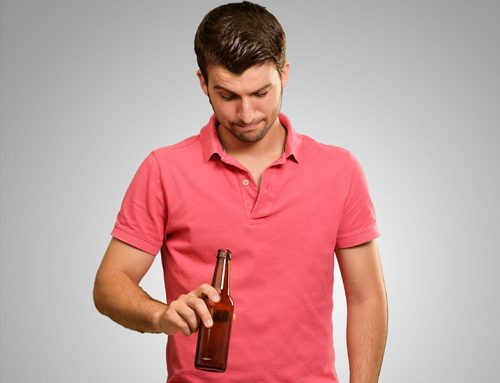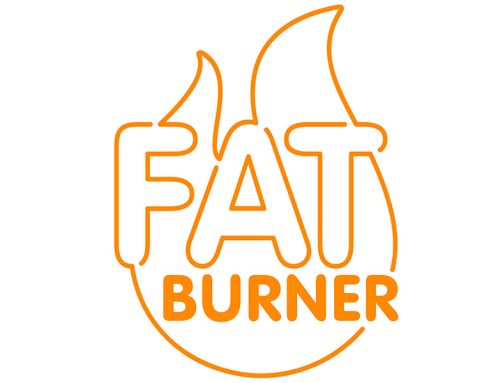There are not many “sure things” in life. Almost everyworthwhile endeavor comes with a certain degree of riskand no assurance of the outcome.In the case of chiseling your body into a lean machine, there’s always some trial, error andexperimentation necessary, especially because each person’sgenetics, body type and physiology are so unique.There can be great value in the trial and error process as a learning experience, but what if you could skip the unnecessary trial and error by placingyour bets on “sure things” instead of guessing or gambling?
That would be great wouldn’t it? Unfortunately, in the healthand fitness field, there appear to be fewer “sure things” thananywhere else!
Fitness experts are known for having opinions and theoriesthat range from one extreme to another. Many competing fat lossprograms represent polar opposites: high carb vs low carb beingthe most common example.
Scientists often end their papers with, “more research isneeded” and they rarely stick their necks out and takea strong stand, unless the evidence is air-tight and rock-solid.
But amidst all the chaos, confusion and conflicting advice ofthe nutrition and fitness world, there are a small handful of”SURE THINGS” and you’re about to learn them all…
These are things that most of the researchers and most of thefitness and dietetic professionals agree on.
Of course, We will never get 100% consensus on the subjects of exercise ornutrition, because science is continuously unfolding and one decade’ssure thing” has been known to become the next decades “myth busted.” Should we close our minds and accept our current “sure things” as final, we may be closing our minds to future discoveries and potential for advancement.
Even if we get a nearly unanimous vote, there’s almost always a lone dissenter out there somewhere, and people sometimes believe weird things, even in the face of science. People also often believe in their dietary approachesNOT for scientific reasons, but for environmental, spiritualor humanitarian reasons.
Nevertheless, if we use science as our guide, then theweight of the current evidence is heavy enough that these are as close to SURE THINGS as we can get, and that you can’t go wrong by applying theseprinciples in your own fat loss program immediately…
SURE THING #1: FOCUS ON THE CALORIC DEFICIT
One thing that virtually the entire scientific community agreeson is that the law of energy balance is always with us. In orderto lose body fat, you must burn more calories than you consume.
This is known as having a “caloric deficit.”
Although there are a few people who still claim that “caloriesdon’t count,” I will be as bold as to say that those people aremistaken.
PLEASE NOTE CAREFULLY: There is a huge difference between saying”you don’t have to count calories” and “calories don’t count.”
Some diet programs are “ad libitum” in nature. This means theydo not advise calorie counting; they simply tell you what to eatand what not to eat. You eat as you please, as long as you followthe food restrictions provided.
What they usually don’t tell you is that the eating restrictionsare the equivalent of having built-in automatic calorie control.These programs do not refute the law of energy balance, theyconfirm it.
When a diet program claims, “Eat as much as you want and stilllose weight”, you are hearing a Big Fat Lie. Incidentally, theFederal Trade Commission (FTC) says it is illegal to make thisclaim in advertisements and they can sue you if you do.
Many people still deny the law of calorie balance in the face ofscientific evidence.
For example, some of the old school low-carbers are notorious for disputing thecalorie balance equation, in favor of believing in some type of”metabolic advantage” that comes from low carbs. I.e., “eat Xgrams of carbs or less, and you can eat as much as you want.”
I assure you, if you have a caloric maintenance level of2000 calories a day and you eat 3000 calories a day of protein andfat (no carbs) you WILL gain fat!
Perhaps it will be harder to consume that many calories in theform of protein and fat as compared to sugar and protein andfat, but if you manage to pull off that gastronomic feat, you will gain weight nonetheless (and low carb writers might be surprised at howmuch food some people can shovel down their throats – even sans carbs!)
Fortunately, the low carb community today has some intelligent voicesspeaking out, saying that low carb does not mean “unlimitedcalories” and that low carb diets also require a caloric deficit;they may simply make it easier to achieve that deficit, automaticallywithout counting calories.
While I am very much in favor of doing things “by the numbers,” programs that tend to make you “automatically” eat less without counting caloriesare not a bad thing at all (the spontaneous reduction in caloric intake often occurs due to an appetite-suppressive effect of certain diets, and or due to the selection of low calorie-density foods which are highly satiating).
That said, no combination of foods, elimination of foods, orarrangement of macronutrients will totally override the law of caloriebalance. To lose fat, you have to eat less than you burn, period.
You have to be diligent about maintaining your deficit too, because:
(1) Energy balance is dynamic, and what is a deficit for you today, may not be a significant deficit six months from now, and
(2) If your maintenance calories are 2000, and your intake is1500 one day (a deficit) and 2500 the next (a surplus), you haveNOT achieved a caloric defict over the two day period – you are inenergy balance. Conveniently, most people seem to have some kindof selective “amnesia” and they only remember the days they werein a deficit! Consistency over time is the key!
The sooner you accept thatthe cornerstone of fat loss is a caloric deficit, the sooneryou’ll be able to think clearly about your nutritional choicesand the better you’ll be able to judge everything you everread, see and hear about nutrition, for the rest of your life.
By the way, did you know that there are two corollaries tothe law of calorie balance, which almost no one teaches?
In my Burn The Fat, Feed The Muscle program, I reveal theselittle-known calorie corollaries (chapter 6) and I teach theexact, scientific formulas for calculating your ideal calorieintake for burning the maximum amount of fat, without losingmuscle or slowing down your metabolism.
You can learn more by visiting:www.BurnTheFat.com
Sincerely,
Your friend and coach,
Tom Venuto, CSCS, NSCA-CPT
www.BurnTheFat.comwww.BurnTheFatInnerCircle.com







What about the other 5 tips ?
patience grasshopper, the other 5 are coming!!!!:-)
when counting calories do you deduct the calories burned from excerise from your total intake?
geneka wrotewhen counting calories do you deduct the calories burned from excerise from your total intake?most calorie formulas calculate your basal metabolic rate first. That does NOT include exercise and activity -just energy needs for daily life functions and metabolism.from there you choose an “activity factor” as a multiplier to determine your TOTAL daily energy expenditure (TDEE, also known as your matinenance level)once youhave maintenance level, that already includes your exercise.From maintenance calorie needs, you create your deficit from there.See last week’s post for more info on appropriate deficits:(“3500 calories to lose a pound of fat?”)exampleif BMR = 1700andactivity factor = 1.55thenTDEE (maintenance) = 2635andif desired deficit = 20%thenTarget calorie intake for fat loss = 2108
Tom, I generally agree.But … to be ENTIRELY precise, isn’t the number of calories contained in a spoon of food determined by the number of cubic centimeters of water that will be increased one degree in temperature (Celsus) by burning the stuff?And isn’t it the case, speaking precisely, that although two spoonfuls of different foods might heat up the same number of cc’s of water if you light them up and burn them under a beaker of water, your body may consume one of spoonfuls and turn it into some number of grams of fat or protein and yet choose not to digest the other spoonful in the same way?I wonder, if you were to eat a bowl of non-digestible charcoal for example, say over a period of time, if you would expect it to turn to fat or protein in your body — or just be eliminated. And yet you could put a match to it and warm up lots of cc’s of water … so it has a lot of calories.I’m just saying.
Yes, and I presume you are referring to factors which affect the energy balance equation, such as thermic effect of food, or non-absorbable calories, but this does not negate the energy balance equation, again, it confirms it.For example, high fiber foods do not have all their caloric value absorbed, most passes through the body. which means that those calories do not even enter into the calorie balance equation.Similarly, there is a thermic effect of food, which is the energy required to digest, absorb and assimilate the food. The thermic effect varies by macronutrient. Protein has the highest thermic effect of all – 25% or possibly as high as 30%. whereas dietary fat has only about a 3% thermic effect.which means, at a 30% thermic effect, if you consume 100 calories of lean protein, you actually only absorb 70 of them…this does not negate the energy balance equation, once again it proves it. 30 calories were required (burned) to digest the food. Thats part of your energy expenditure.if you compare two diets then with the same calories, and one is 40% protein and the other is 20% protein, the diet of 40% protein may result in more weight loss.however, if you control (experimentally) for protein intake as they did in this studyhttp://www.burnthefatinnercircle.com/public/296.cfm?sd=2then no difference is found in the weight loss results.In that the thermic effect of protein could be called a legimate “metaboilc advantage” , you are corect in your line of reasoning, however, this does not show that low carb diets have a metabolic advantage, it proves that high PROTEIN diets have a metabolic advantage.It also doesnt prove that calories dont count, only that some foods are more thermic than others and some foods never even get absorbed. Naturally, if its not even absorbed, it cant count. Once absorbed, you have the issue of nutrient partitioning (where the calories go)and this gets complex fast.. but over time, it all seems to even itself out within the calorie balance equation..At the end of the day, you’re always still working inside an energy balance equation.best regards,
Tom wrote:> “At the end of the day, you’re always still working inside an energy balance equation.”Yes, that is what we agree on. My point was that the caloric content of a food is only a proxy for what our bodies will do with it after we eat it, and for some foods this is a better proxy than for others.Keep up the good work!
Another super informative post. Like Guillermo, I eagerly await the next five.Also, very interesting tidbit about the FTC!
How would I know how many calories are burnt in my gym routine. On cardio equipment you get an idea, but what about weight training?
I’ve tried every gimmick diet out there and I finally tried these simple things.1) 1200 to 1500 calories a day(1500 when working out)2) 8- 8 oz glasses of water per day3) No processed foods4) increase my fiber5) fruits in the morning and the right carbs in the afternoon6) lots of green veggies7) lean proteins8) No sodas, no caffiene, no cheese9) 8 hrs of sleep10) Positive attitude…never give up, no matter what11) One cheat meal a week (that one meal, not a whole day12) Exercises consisting of Cardio, Strength/Weight and Yoga – 4 hrs a week.End result, I have lost inches, weight, sleep better, better attitude, skin glows and lots of of energy.I’m staying with what works!
Doesn’t protein contain dietary fat? Does that affect the thermic effect?The bigger question, however, is how do you create a calorie deficit on an ongoing basis without being hungry? And what can you do about cravings, those times you aren’t even hungry but you are getting messages (from who knows where) to EAT?!?!?!?!?!
Calorie counts. Period. whether it’s over a period of 24 hours, 3 days or 1 week.Then you can go to the nitty-gritty of carb/protein/fat proportions, the food sources, meal frequency, thermic effect, metabolic advantages, etc. – that’s a whole area, I should say, the whole industry, in this to tweak the calorie equation and sell into the psychological weakness of dieters.Just look at the fad diet trend in the last few years – too many dieting methods to count. Do they work? Well, after billions of dollars of spending and marketing, U.S. obesity epidemic continues to grow. That’s evidence.http://careyforfitness.blogspot.com/2007/08/us-obesity-epidemic-continues-to-grow.htmlNone of these “dieting” tricks work for the long term. The “long term” here means 3 months for perpetual dieters who hop from program to program. It should at least work for a few years and become a lifestyle habit for life.A recent example is NutriSystem. The company stock fell by 1/3 on Thursday Oct. 4 after pre-announcing less than expected revenue and earnings. The company business and stock price soared since 2004/2005 from the end (or peak) of Aktins diet craze.The pre-prepared meal plan is a great convenience for people who cannot really count calorie and do their portion control. It would work at the beginning since the meals are prepared according to the person’s profile and weight-loss goal. I doubt any person would count on the pre-prepared delivered meals for long. I would love to shop, prepare and enjoy my own foods with occasional dining out.Finally NutriSystem was caught up with its own business model. Now it has hard time to sign up new customers and keep them on the program. Will the company come back? Will dieters ditch the meal program and go to the next dieting craze? Only time will tell.We can definitely learn the diet trend from stock market …http://careyforfitness.blogspot.com/2007/10/what-can-we-learn-about-fad-diet-trend.htmlWhat’s the next?Careyhttp://careyforfitness.blogspot.com
Hi Tom,Love your newsletter. I was reading the 6 “Sure Things” for burning fat, pt. 1 today. You spoke of the supposed advantage, purported by low-carb types, that there is a metabolic advantage to eating a diet low in carbs and higher in protien.When you asked for studies of calorie-controlled conditions in a lab, it reminded me of an article I’d read on research that was done with monkeys of some sort. My memory is that they fed two groups of monkeys diets identical in calories, but different in carb makeup. The low-carb monkeys lost more weight (or stayed lower weight?) than the high carb. It really caught my attention at the time because it seemed to show, in a scientific setting, a metabolic advantage for low-carb diets. Nothing to the extent of being able to eat 3,000 calories if you’re at a 2,000 calorie maintenance level, but some advantage none the less.I could’ve sworn I bookmarked the site with the article but I can’t find it. It would be a good one to keep your eyes open for when you’re out researching. I’m going to keep trying to find it, too, as I found it very intriguing.Thanks for all your good work!Warmly,Cathy
I totally agree. I am 45 and have been going to the gym for over a year now. The last 7 months I watched my calorie intake along with working out. I finally lost 17 lbs. in body fat and gained 3 pounds of lean muscle. It was watching my calorie intake that made the difference without a doubt…. By the way look how many calories are in a serving of cookies or chips. Wasted calories……
Hi Tom,Love your BFFM book! Mate, have you ever noticed by HOW MUCH a difference it makes when you estimate your activity level when calculating your calories?One can use the accurate body fat method of calculating base rate, but then estimating activity level can make the whole thing a bit slippery.Even BFFM gives very “wide” numbers for this part of the formula. Do you have a more detailed version of this scale?CheersSteve
Hey Tom,great info as always.But as someone else asked, how do you tell how many calories are burnt while at the gym? The cardio machines give you a calorie count…. But is that accurate? How can you add calories burned while doing weight traing?
Well i have to make clear first that every person is different and every body reacts differently in fat burning diets.But there are some principles that apply to almost everyone.The first thing is that when you want to burn fat you have to reduce your calories in order to create a calorie deficit.This is a no brainer,but the trick here is that you should not reduce very much your calories or your metabolism will become too slow and finally will not burn calories.Also you should count down your maintenance calories/day and from there extract 300-500 calories per day.This deficit combined with some cardio or weights should lead to 1 pound of weight loss per week.This is a good rate and you will not sacrifice much muscle.Finally you should keep your protein intake around 40% of total calories and take most of your carbohydrates after workout and in the morning that you mostly need them.Well if you want to see a personal fat loss success story visit: http://burningfatreviews.blogspot.com